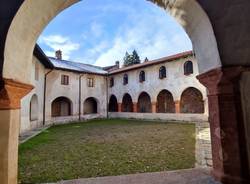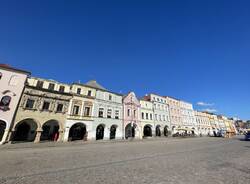Legambiente: the new year’s clean air is because of the Neverwinter
In the first 10 days of January, PM10 values have been the lowest of the last 20 years thanks to the mild temperatures. But it won’t last: the resumption of livestock spreading could make a decisive contribution to the deterioration of air quality from the next week
A new year begins with clean air that had never been seen, not even in 2021 when school and working places were closed due to the lockdown. Yesterday, the Arpa’s control units recorded some PM10 levels that are hard to reach even during the breeziest spring days: 9mg/m3 in Viale Marche in Milan, 8mg/m3 in Lodi and Como, 6mg/m3 in the city centre of Monza and Bergamo, and in Lecco the levels were so low that the instruments cannot even measure them.
But it has been the whole decade since the beginning of the year that has given the Lombards clean air with quite unusual levels. It is not a miracle, but an effect of the neverwinter .
The mild temperatures, indeed, have prevented the formation of the cold air buffer that stagnates at low altidudes, and in which every winter, inexorably for decades, the pollutants produced by the activities of the citizens and businesses, along with those resulting from the intensive livestock farms, scattered in low plains.
If we take the data from Arpa del Verziere, the historical control unit in Milan, as a reference, the first ten days of January showed the lowest data ever, with an average of only 17.8 mg/m3 from January 2 to January 10, very close to the fateful 15 mg/m3 level recommended by the WHO – air to breath deeply. However, this idyll is destined to end soon, as forecasts indicate a gradual return to normal weather conditions already in the coming days.
Moreover, from January 15, the spreading of livestock manure in the fields could start again, an activity that alone is capable of giving a decisive boost to the worsening of air quality throughout the region, if we consider the enormous amount of manure produced by the millions of cattle and pigs reared in the stables of Lombardy. Despite the very positive news of clean air, however, the weather conditions in recent weeks are indicative of the ongoing climate change, which has equally worrying implications in terms of drought effects.
“The good air quality data in these days should not make us underestimate the seriousness of the climatic anomalies we are going through, and which strongly worry us for the year that is beginning,” says Barbara Meggetto, president of Legambiente Lombardia. “We are starting badly, there is very little snow in the mountains and water supplies are at a minimum, with large lakes at a quarter of their capacity. Due to the absence of rainfall, we risk a drought even worse than that of 2022. If we do not multiply the efforts to decarbonise the economy, the Po Valley will face an increasingly difficult climate situation”.
Translated by Ihssan Arigannou, Enea Molinari, Annalisa Ponzo
Revised by Nicole Dall’Osto
La community di VareseNews
Loro ne fanno già parte
Ultimi commenti
Clara Fiore su 2024 da record, l'Ospedale del Ponte è tra i primi quattro centri lombardi per numero di accessi
gokusayan123 su Rissa al bar a Saronno, il Questore dispone la chiusura del locale per 30 giorni
feimoncb su Poste centrali di Busto Arsizio: ecco come chiudere l'anno perdendo un cliente
italo su Poste centrali di Busto Arsizio: ecco come chiudere l'anno perdendo un cliente
lenny54 su Botti vietati a capodanno a Varese
GianPix su Arriverà domani














Accedi o registrati per commentare questo articolo.
L'email è richiesta ma non verrà mostrata ai visitatori. Il contenuto di questo commento esprime il pensiero dell'autore e non rappresenta la linea editoriale di VareseNews.it, che rimane autonoma e indipendente. I messaggi inclusi nei commenti non sono testi giornalistici, ma post inviati dai singoli lettori che possono essere automaticamente pubblicati senza filtro preventivo. I commenti che includano uno o più link a siti esterni verranno rimossi in automatico dal sistema.